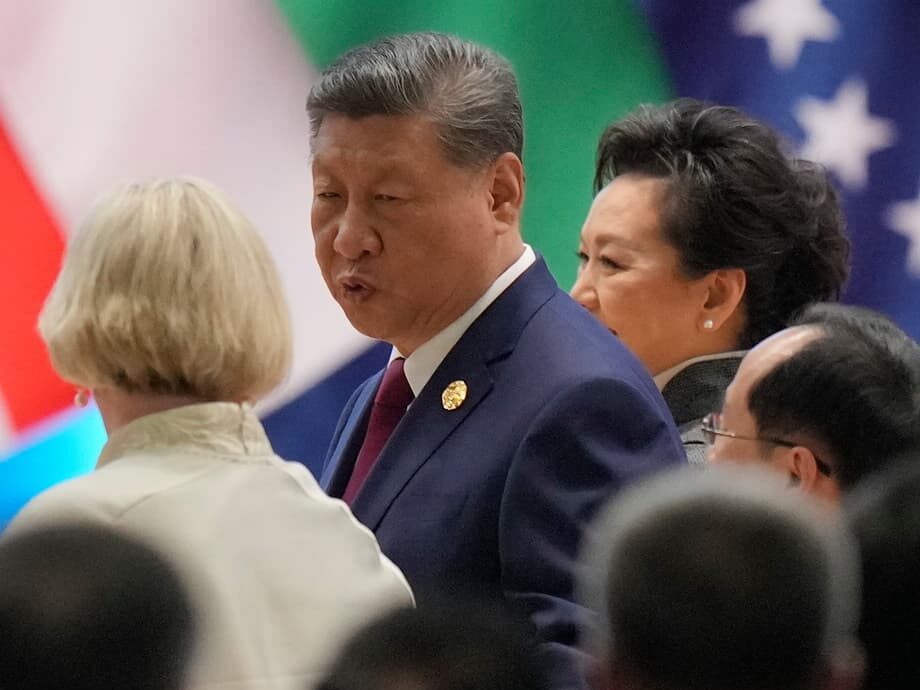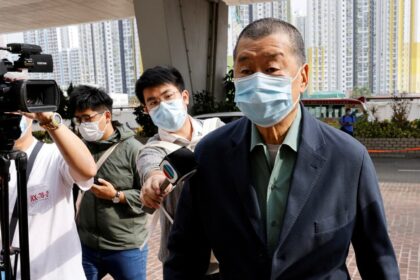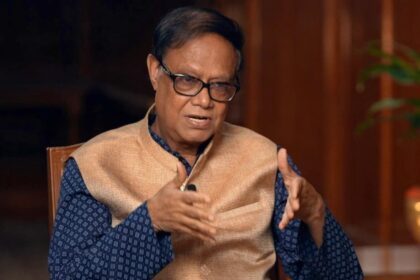Celebration in Beijing, constraints on the ground
At a high profile global meeting in Beijing to mark the 30th anniversary of the 1995 United Nations world conference on women, Xi Jinping praised advances for women. He pointed to a sharp fall in maternal mortality, rising participation of women in public life, and new funding aimed at supporting women beyond China’s borders. The event cast China as a standard bearer for gender equality and a faithful steward of the Beijing Declaration’s legacy. Officials highlighted contributions to international programs and framed recent policy steps as proof that the country’s approach places women at the center of social development and national rejuvenation.
- Celebration in Beijing, constraints on the ground
- What the summit showcased
- Inside China, activism meets new red lines
- The online battleground: censorship, labels and coordinated harassment
- Demography and the push for marriage and childbirth
- Gains on paper, gaps in practice
- Cases that define the moment
- Adaptation and quiet resistance
- Key Points
Outside the summit venue, advocates describe a different reality. The space for public feminist advocacy has narrowed over the past decade, shaped by a broader clampdown on civil society and tighter control of independent organizing. The detention of five young activists in 2015 for planning a campaign against sexual harassment marked a turning point. Since then, feminist groups have been forced to close, online platforms have banned prominent accounts, and new rules frame outspoken gender debates as threats to social stability. In 2022, the Communist Party’s Politburo included no women for the first time since 1997. Popular feminist commentators have seen their posts erased and their profiles removed, while a stream of official messaging urges women to embrace traditional roles to address a falling birth rate. The contrast between celebratory speeches and conditions on the ground remains stark.
What the summit showcased
Chinese leaders used the gathering to present a narrative of progress and global responsibility. They emphasized reductions in maternal deaths, more women in higher education and public administration, and continued poverty alleviation. They also framed women’s advancement as part of national strength, casting gender equality as essential to social harmony and economic vitality. State affiliated institutions portrayed these outcomes as the result of long running commitments dating to early constitutional promises of equality between men and women.
The summit also featured funding pledges. China announced a new contribution to UN Women and a separate fund intended to assist countries across the global south. The message to guests was clear. Beijing sees itself as a partner for development on women’s issues, at home and abroad, and as a steward of the Beijing platform’s goals. The government presented this as a consistent policy line that aligns social stability, economic growth, and the advancement of women.
The 1995 legacy and party control
The 1995 conference put Beijing at the center of a global conversation on women’s rights. It also catalyzed a new wave of bottom up activism inside China. Over time, the party state drew sharper lines around who may organize, what can be said, and where public campaigns can unfold. While the All China Women’s Federation continues to run outreach and support services, independent groups that fall outside state structures have faced greater scrutiny. This unsettled coexistence between official programs and grassroots organizing set the stage for the clashes that followed.
Inside China, activism meets new red lines
The arrests of the Feminist Five in March 2015, on the eve of International Women’s Day, signaled a new intolerance of independent mobilization. Police accused them of picking quarrels and provoking trouble for planning to hand out stickers on public transportation that raised awareness about sexual harassment. They were released on bail after weeks in detention, yet their case marked a watershed. It sent a broader message to civil society across the country that collective action on gender and other social questions would face tougher scrutiny.
Since then, constraints have multiplied. Authorities shuttered prominent feminist social media feeds, including the influential Feminist Voices account in 2018. Platform rules now target speech labeled as gender antagonism, a category that has been used to justify broad removals. In recent months, more than a thousand accounts on major platforms were banned under that rubric. Feminist bloggers such as Jiang Chan have had WeChat accounts deleted. On Douban, groups centered on gender debates have been purged. The online environment has become a maze of keyword filters, content takedowns, and account suspensions.
The pressure reaches beyond policy documents and platform rules. Wang Huiling, a vlogger from rural Anhui, drew millions of followers with videos that celebrated women’s independence and practical life skills. Her accounts vanished across platforms, and her memoir was blocked from reprinting. She has said the response reflects fears that independent ideas might spread. That experience echoes a wider pattern in which popular voices are discredited, erased, or pushed into silence.
In a message delivered on behalf of Chinese feminist activists at a human rights forum marking the Beijing Declaration’s anniversary, they described persistence despite tightening controls, and a growing network of women supporting each other.
Today, more and more women now are acting against the injustices we face in our country.
The cost of that persistence is high. Activists face surveillance, interrogation, and legal risks. Some have gone into exile. Others organize in quieter ways, shifting from public protests to documentation, legal aid, and mutual support. The movement survives, but in a harsher climate where each step can carry consequences.
The online battleground: censorship, labels and coordinated harassment
China’s internet governance combines law enforcement, platform guidelines, and automated filters. Over time, platforms have added reporting categories that frame contentious feminist speech as inciting gender antagonism. Content labeled in this way often disappears, and accounts can be banned quickly. Viral moments that spotlight gender based violence or workplace discrimination can trigger rapid crackdowns, with keywords blocked and comment sections closed.
Hostile campaigns compound the pressure. Activists who speak out can face doxing and targeted harassment. After one well known advocate was harassed in a restaurant, her online posts drew a wave of attacks that labeled her a separatist and led to permanent bans. Supporters who commented in her defense were also silenced. The pattern repeats across platforms, from microblogs to e commerce, where listings tied to feminist slogans have been removed. The result is a chilling effect that discourages many from posting at all.
Legal risks also play a role. Broad public order offenses make it easier to pursue cases against activists. Survivors who name alleged abusers online sometimes encounter countersuits for defamation, creating a costly path that deters others. Combined with platform penalties, these dynamics turn the internet, once the main venue for feminist expression, into a far more hazardous space.
Demography and the push for marriage and childbirth
As China confronts a falling birth rate and rapid aging, policy messaging has shifted toward reinforcing family formation. Campaigns celebrate model households and encourage earlier marriage and larger families. Universities and local groups have opened programs that emphasize traditional feminine virtues. At the same time, officials have warned against effeminate aesthetics among young men, while military propaganda calls on men to be tough and dutiful. This is not only culture war rhetoric. It is intertwined with demographic pressure and a desire for social predictability.
Xi has tied the conversation about gender to national goals. In 2023 he urged a reset of societal norms around family life.
China should cultivate a new marriage and child-bearing culture.
Local governments have experimented with incentives for childbirth, such as extended leave, subsidies, and mortgage support. Some courts have made divorce harder to obtain in short marriages. Women describe steady pressure to marry and have children, along with expectations that they shoulder most care work. These policies land in a labor market where job ads still favor men in some sectors, where women face questions about fertility in interviews, and where the gender pay gap persists. The costs of motherhood remain high and fall unevenly on women, which complicates the very goals policymakers seek.
Gains on paper, gaps in practice
China’s leaders often cite achievements that are real. Maternal mortality has fallen, and women’s university enrollment has grown. An anti domestic violence law took effect in 2016 and gave authorities clearer tools to address intimate partner abuse. Recent updates to women’s protection laws add language that bars sexist recruitment and tackles harassment. These are important steps that reflect decades of work by both officials and advocates.
Implementation is uneven. Survivors still struggle to secure restraining orders or police protection. In workplaces, discriminatory practices continue despite formal prohibitions. Courts have thrown out many harassment suits, and women who go public face reputational harm or legal risks. The gap between law and enforcement shapes many choices. It encourages quiet exit rather than formal complaints and keeps some victims from coming forward.
By several measures, women’s standing has slipped during Xi’s tenure. Female labor force participation has declined. China’s position in a widely watched global gender gap index fell from near the upper middle of the ranking a decade ago to the lower third in 2022. At the top of politics, there were no women in the 24 member Politburo chosen in 2022, a break with the pattern since the late 1990s. These signals matter because they shape expectations for promotion, pay, and policy attention.
Why independent organizing triggers alarm
The party views independently organized movements as potential rivals for public trust and mobilization. Feminist campaigns can move quickly, link personal experience to public action, and cut across class and region. That organizing power, tried and tested on campuses and in city streets, sits uneasily with a system that reserves political initiative for the state. The result is a narrow channel for women’s advocacy that runs through official bodies, while independent actors are pushed to the margins.
Cases that define the moment
Huang Xueqin, a journalist who helped spark China’s #MeToo wave, was sentenced this year to five years in prison on a subversion charge. Her prosecution shows how quickly gender activism can be redefined as state security. Supporters say her work was about documenting harassment and empowering victims, activities that now draw the heaviest penalties.
He Fangmei, a vaccine safety advocate, received a five year and six month sentence. Rights experts at the United Nations have raised concerns about her case and the well being of her children after authorities took them. These are not isolated outcomes. They reflect the growing use of criminal law to stifle activism and send a message to others.
Public demand for accountability also persists around the case known as the Chained Woman, an incident that drew national outrage after video showed a mother of eight chained in a rural outbuilding. Despite local investigations and sanctions against some officials, many continue to call for full transparency and independent oversight. The case became a symbol of deeper problems that women face, including trafficking, weak protection systems, and local cover ups.
Adaptation and quiet resistance
With direct confrontation blocked, many women are pushing into culture and comedy. Her Story, a feminist comedy written by and starring women, earned about 720 million yuan at the box office. A different female directed film, Yolo, topped annual ticket sales with roughly 3.4 billion yuan. These successes suggest an audience ready to engage with stories about single parenting, divorce, and workplace bias. Comedy clubs are drawing more female performers who talk openly about period stigma, office dynamics, and the demands placed on women. The jokes land because they capture everyday life and invite reflection.
These stages are not safe harbors. The industry has endured fines and cancellations when routines cross red lines. A performer was penalized for a joke officials said insulted the military, and the stand up sector went quiet for months. Online, comedians like Yang Li have faced backlash campaigns accusing them of provoking gender antagonism. Even with these risks, humor has become a tool that sidesteps direct confrontation and builds a shared language for experiences many women recognize.
Beyond culture, the movement is evolving through smaller networks. Reading groups, legal aid circles, and mutual support communities continue to operate, sometimes quietly and sometimes in diaspora. Some leading figures have relocated abroad and support campaigns from overseas, including documentation, translations, and advocacy with international institutions. Inside the country, many rely on encrypted chats and informal ties, choosing steady, local work over public spectacle. The arc is long and uneven, yet the current is still flowing.
Key Points
- China hosted a global women’s meeting marking the 30th anniversary of the 1995 Beijing conference, with Xi Jinping praising progress and pledging new funds.
- At the same time, the space for feminist activism inside China has narrowed, with independent groups shut and social media accounts banned.
- Platform rules target content labeled as gender antagonism, leading to widespread content removals and account suspensions.
- High profile cases include the 2015 detention of the Feminist Five, the five year sentence for journalist and #MeToo advocate Huang Xueqin, and the sentencing of vaccine safety campaigner He Fangmei.
- Authorities promote traditional roles for women to address a falling birth rate, while Xi has called to cultivate a new marriage and child-bearing culture.
- Laws against domestic violence and discrimination exist, but uneven enforcement limits their impact on daily life and workplace practices.
- Women’s representation at the top of politics declined, with no women in the 24 member Politburo chosen in 2022, and China’s global gender gap ranking fell in recent years.
- Feminist expression adapts through culture and humor, with female led films and stand up comedy gaining audiences even as censors and backlash constrain the scene.












